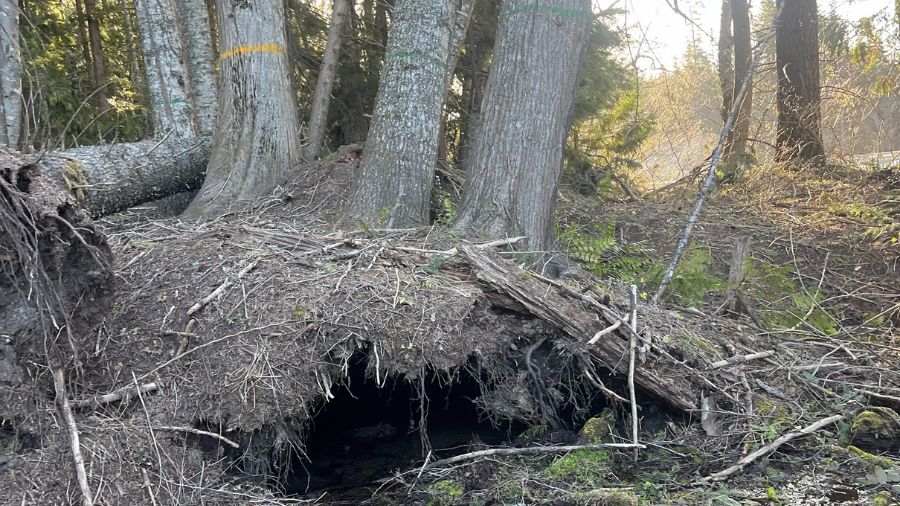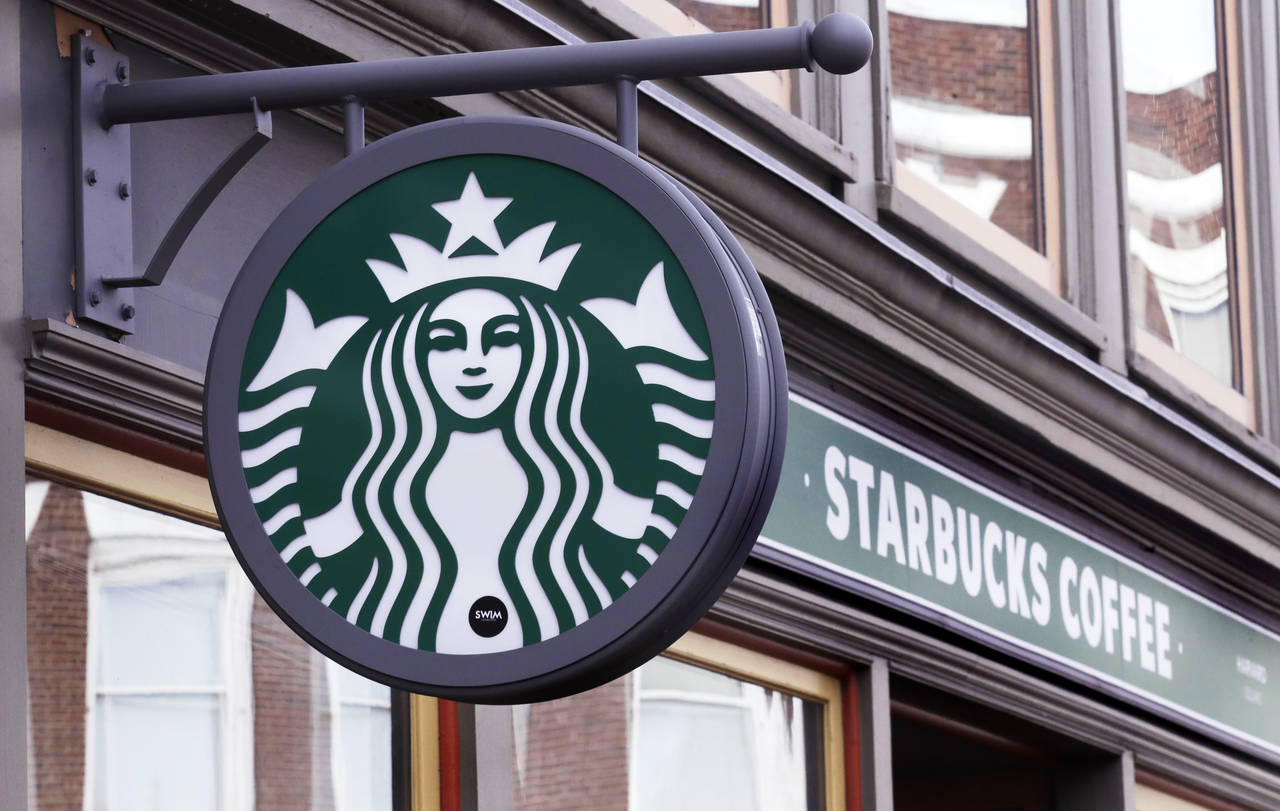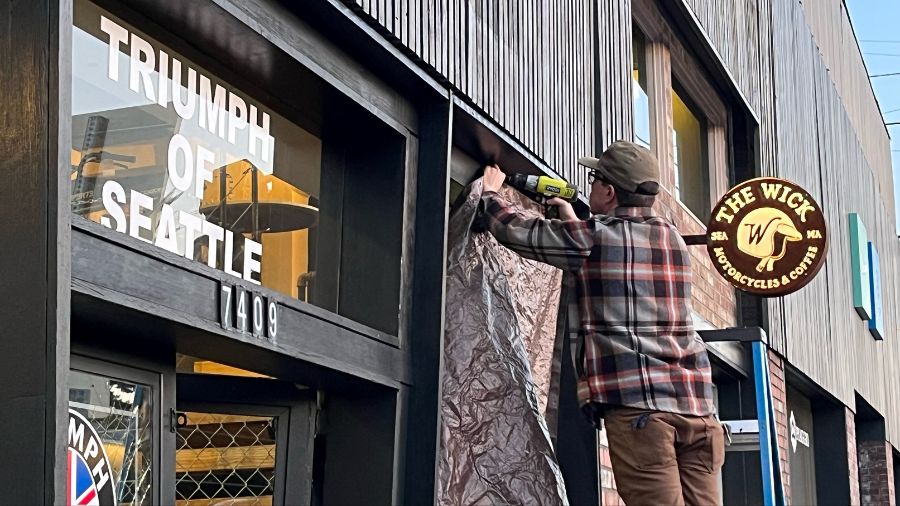Seattle mayoral candidates lay out their plans to address city’s homeless crisis
Jul 16, 2021, 5:34 AM | Updated: Aug 3, 2021, 10:27 am

The Exhibition Hall at the Seattle Center housed a temporary men's shelter in May of 2020. (Photo by Karen Ducey/Getty Images)
(Photo by Karen Ducey/Getty Images)
In the 2021 primary election, Seattle voters get to decide who to support as the city’s next mayor. And despite a myriad of issues the winning candidate will have to balance, homelessness continues to be front of mind for many.
So, where do each of the major candidates stand on Seattle’s homeless crisis?
Colleen Echohawk
Colleen Echohawk, Chief Seattle Club Executive Director, says she hopes to attack the city’s ever-escalating homeless crisis at its source: housing.
“Permanent supportive housing does work,” she told KTTH’s Jason Rantz Show. “It’s true — the data is clear that it works.”
Echohawks calls on state AG to investigate Durkan’s missing texts
“It is expensive, and in between, there are problems that are unacceptable,” she continued. “I feel that every single person in the city of Seattle should be able to walk down the street and feel very safe, and so that’s something you definitely have to be working on in our community.” Read more.
James Donaldson
Speaking to KIRO Radio’s Dori Monson, former Seattle SuperSonic James Donaldson pointed to his own personal experiences as an inroad to understanding how to address the things that often force someone along the path to homelessness.
“I come back at you after going through four major surgical procedures in five years, three of them on my heart, one of them on my right lung; bankruptcy, foreclosure, near eviction, financial ruin — I spent all my life savings,” he described. “I have life experiences that resonate with everybody out there that’s going through a very difficult time right now, whether you’re facing foreclosure and eviction, whether you’ve had medical emergencies, whether you’ve had financial ruin.” Read more.
Jessyn Farrell
Jessyn Farrell, who previously served as a state lawmaker, believes that Seattle’s ongoing issues with homeless camps and sweeps is indicative of larger issues that need to be addressed.
“We’ve put ourselves in this box around parks versus sweeps,” she told KIRO Radio’s Gee & Ursula Show. “It is true that parks have a really important role in the city, and they need to be places where people of all ages can recreate. And we can also acknowledge that sweeps don’t work — it doesn’t help to move people from one park to the next without really going at a viable alternative to sleeping outside.”
To fix that, she proposes increased investments in “interim solutions like tiny homes” and hotels to help stabilize the chronically homeless, and then figuring out a way to build enough permanent supportive housing with the help of local and federal partners. Read more.
Bruce Harrell
Bruce Harrell is no stranger to Seattle city government, having served as city council president and once as interim mayor. Should he be elected mayor, he hopes to have the city approach its homeless crisis in the same way a nonprofit would.
“What the city of Seattle should do is set up the best infrastructure, where everyone knows where they can fit in to solve the problem,” he told the Gee & Ursula Show. “If 700,000 people just gave a dollar, we raised $700,000, right? So we are going to mirror a nonprofit to make sure that we are very aggressive in raising as much money as possible, because at some point you do need more resources.”
In service of that goal, he wants to “open the data and technology so that everyone can know what they can do.”
“What I’m going to do is change the narrative that Seattle collectively will find a way to address the problem aggressively,” he concluded. Read more.
Andrew Grant Houston
Andrew Grant Houston, who comes from an architectural background, believes the solution lies in building enough shelter space to where the city can bring its homeless population indoors permanently.
“I think that really just starts with 2,500 tiny homes, and what it really is recognizing is that currently in Seattle we have about 3,500 people who are currently unsheltered. That means they are not in one of our other support services — they are not even in an RV,” he told the Gee & Ursula Show. “These are the unsanctioned encampments of tents that people see outside every day.”
“And so what we are saying is that we need to directly bring those people in, and provide them a sense of permanence as the direct response to be acknowledging that we are in an emergency,” he added.
Longer term, he hopes to continue investing money and resources into permanent affordable housing options, so that “we can actually get people into that system and out of homelessness.” Read more.
Art Langlie
Art Langlie, the grandson of former Washington Governor Arthur Langlie, touts his decades of work with the Salvation Army to stand up homeless shelters in Seattle, with a focus of giving residents personal space, providing drapes around an area with a bed and a chair, as well as lock boxes for personal effects.
More than that, though, he wants to address the mental health aspect of homelessness, which he believes sits at the very core of the city’s larger crisis.
“I think that we ought to be tapping more of the mental health element, and finding the best and the brightest to help us with that,” he told the Gee & Ursula Show, advocating for partnerships with local institutions like UW Medicine. Read more.
Lance Randall
Having worked as an economic developer, Lance Randall’s plan for homelessness centers on getting people onto a path to treatment for mental health issues and drug addiction, and then eventually giving them the tools to financially support themselves later on down the line.
“My plan is called the Dignity Project, where we will bring dignity to these individuals and try to help them get through their challenges as we’re trying to transition them into housing or workforce development,” he explained. “I want to put more emphasis on stabilizing them with treatment, and then preparing them to transition into whatever situation that we can transition them into.” Read more.
Casey Sixkiller
Casey Sixkiller, who currently serves as a deputy mayor under current Mayor Jenny Durkan, sees the city’s homeless crisis as one rooted in equities exacerbated by the pandemic, particularly for working families.
“Too many of our families are living on the edge, and for them, a future in Seattle is getting further and further out of reach,” he told the Gee & Ursula Show on KIRO Radio. “I’m getting in this race to be able to talk about ways we can make Seattle more affordable for our working families.”
To that end, he’s proposing what he describes as “the largest guaranteed basic income in the nation, to try and lift up 16,000 families that we know have been left behind by our economy.”
“The fact is we’ve got a ton of folks who are making less than $50,000 a year when our median household income is $102,000 a year,” he pointed out. Read more.
Also running are Lorena Gonzalez, who has declined an interview with KIRO Radio by the time of publication, as well as Clinton Bliss, Henry Clay Dennison, Omari Tahir-Garrett, Rodney Holt, Stan Lippmann, Don Rivers, and Bobby Tucker.













